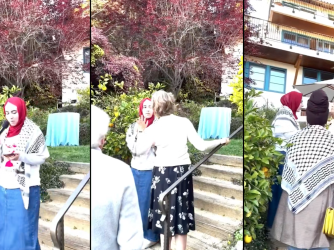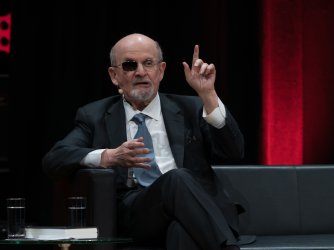Table of Contents
Don’t Tell Others You’re Leaving the Class, Or We’ll Find You Guilty of Hazing
As we report in our press release today, St. Louis Community College at Meramec (STLCC) has placed a student on disciplinary probation and found him guilty of hazing and several other offenses simply for e-mailing other students about his plans to withdraw from his Organic Chemistry I course. He invited others to do likewise and later invited his classmates to join him in taking Organic Chemistry II at another college.
The student, Jun Xiao, holds a Ph.D. from the Chinese Academy of Sciences and has postdoctoral training from the Massachusetts Institute of Technology and Columbia University. He enrolled at STLCC to satisfy the prerequisites for medical school. Dissatisfied with one of his professors, he started looking for other options. When he found some, he invited his classmates to join him. On October 23, 2007, two days later, Xiao received e-mails and phone calls requiring him to meet immediately with Acting Vice President of Student Affairs Daniel R. Herbst. One letter, from Herbst’s assistant, cryptically stated, “Your academic career rests on your meeting with him.” Another, from Herbst himself, stated, “Please note, that until you have a meeting with me, that you are prohibited from sending any emails to students in any of your courses. Violation of this directive, can and will result in your immediate suspension from St. Louis Community College.”
On October 24, Herbst gave him a letter informing him that he had been placed on “Disciplinary Probation” for the 2007-2008 academic year and that he was prohibited from contacting other STLCC students by e-mail. The letter also stated that Herbst—without any hearing—had already found Xiao guilty of hazing, disorderly conduct, breach of the peace, and failure to comply with the directions of a college official. But when Xiao later asked for a written clarification of the complaints and charges against him, Herbst refused to provide any such information. Xiao’s first appeal of Herbst’s decision was denied by Herbst himself.
Xiao then appealed again, this time to STLCC’s Student Appellate Hearing Committee. That committee, which is required to hold a hearing “within 15 calendar days from the date of notification to the student,” has refused even to set a hearing date, instead informing him that the “15-day clock has not begun to tick because you have not yet received official notification,” and that he could “expect” to receive such notification in January 2008. In the meantime, Xiao remains on disciplinary probation and may not contact other students by e-mail.
FIRE wrote to STLCC President Paul Pai on December 4, reminding him that STLCC’s own policies provide some due process protections. They state that a student must be given notice of the charges brought against him; a description of the alleged violation; names of the persons requesting disciplinary proceedings; names of witnesses in the case; and the date, time, and place of the hearing. STLCC has refused to provide Xiao with any of this required information, denying him the due process rights that STLCC, a public institution, must afford him under its own policies and under the U.S. Constitution. Our letter also pointed out that Xiao’s case should never have reached this point because his e-mails constitute clearly protected speech.
FIRE asked for a response by December 7—a shorter time than we usually offer, because of the ongoing restraint on Xiao’s freedom of speech, not to mention the damage that these charges could do to Xiao’s reputation, academic record, and medical school applications. So far, we have received no response. FIRE’s letter apparently has had some effect, however: although the Student Appellate Hearing Committee chairperson, Denise Sperruzza, had been trying to schedule the hearing for December 5—without fulfilling STLCC’s own required due process notifications—she cancelled the proposed hearing until she had “all necessary information to proceed.”
As Samantha said in our press release, “Punishing a student for e-mailing his classmates about the possibility of enrolling in a different course is a shamefully transparent attempt to suppress criticism of the college.” She added, “STLCC must either rescind the punishment it arbitrarily meted out to Xiao or, at the very least, provide him with reasonable notice and a fair hearing so that he may defend himself against what appear to be wildly inappropriate charges.”
It is within STLCC’s power—and within its own guidelines—to correct this ongoing injustice immediately, simply by vacating Herbst’s decision that Xiao was guilty. By not holding the appellate hearing at all, STLCC can spare itself the embarrassment of putting Xiao’s e-mails on trial. President Pai can keep STLCC’s black eye from growing larger by following this sensible course.policies that violate student’s rights.
Recent Articles
FIRE’s award-winning Newsdesk covers the free speech news you need to stay informed.

No, the Berkeley Law student didn’t have a First Amendment right to interrupt the dean’s backyard party

Salman Rushdie calls out left-wing censorship in CBS interview

Falsely claiming a First Amendment right at a dinner party at private home — FAN 419.1
